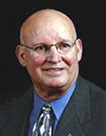Ohio Sen 3rd, 7th, 17th, 19th, 27th & 29th: Republican Incumbents
This is the third in a series of profiles of Ohio Senate races. The seventeen seats up for election are about evenly divided between Republicans and Democrats: 3 Republican-held open seats, 3 Democratic-held open seats, 6 Republican incumbents, and 5 Democratic incumbents. In my first post I looked at the three races in the first category, concluding that the Democrats' best chance for a pick up is in the 13th District. In my second post I looked at the Democratic-held open seats and concluded that they all seem relatively safe for the Democratic Party. In this entry I'll look at the six seats defended by Republican incumbents. I've listed them in order of the percentage of votes won by each incumbent in his previous election (2002), lowest to highest.
In an ordinary year, I would say that all of these seats look relatively safe for the Republicans, due to the advantages of incumbency, the support of the formidable Republican fund-raising-and-propaganda machine, and the paucity of political experience among the Democratic candidates (who have no experience as elected officials at all except city council member for Thomas E. West in the 29th District and chairman of a township board of trustees for Kevin Griffith in the 19th District). However, this is no ordinary year. The Akron Buckeye Poll released on April 6 shows that 59% of Ohioans want Democrats to take control of state government, 64% feel that Ohio is on the "wrong track," and 89% say public corruption is a "serious problem" or "somewhat of a problem." In this climate, relatively inexperienced candidates with an appealing story and an energetic campaign might unseat entrenched incumbents. Viewed in this light, I think two or three of these races may be competitive, with perhaps the best chance for a pickup coming in the 3rd District, where Emily Kreider (D-Westerville) takes on Sen. David Goodman (R-Columbus).
27th District. State Sen. Kevin Coughlin (R-Cuyahoga Falls) had the narrowest prior margin of victory, having defeated personal injury and labor lawyer Tom Bevan (D-Akron) by only 52.95% to 47.05% that year, a difference of 5.90%. This convoluted district includes the northern and western parts of Summit County, along with a piece reaching into the south-central part of the county, incorporating Barberton, Bath, Boston Heights, Cuyahoga Falls, Fairlawn, Hudson, Macedonia, Munroe Falls, Northfield, Peninsula, Richfield, Silver Lake, Stow, Twinsburg, and certain parts of Akron. The result is a district that leans Republican but is fairly moderate. As an Akron friend described it to me, the independent voters of northern Summit County lean Republican, but the Republicans there tend to be fiscally conservative/socially moderate types rather than the religious zealots and partisan extremists who dominate today's Republican Party.
 Coughlin's campaign biography indicates that he has a bachelor's and master's degree in Public Administration from Bowling Green State University. Coughlin served in the Ohio House of Representatives from 1997 to 2001. In the Senate he chairs the Health, Human Services & Aging Committee Committee, and serves on the Energy & Public Utilities and Highways & Transportation Committees. He's active in the Council of State Governments and teaches political science part-time at the University of Akron. Project Vote Smart indicates that Coughlin got a rating of 77% from the United Conservatives of Ohio for 2001-2002, which is tied with Sen. Bill Harris for the most conservative among the incumbents considered here. Coughlin has enraged progressives with his co-sponsorship of H.B.3, the controversial "election reform" law that imposes a vote-suppressing ID requirement and cripples vote recounts and challenges, and with his long-standing support for the Iraq War.
Coughlin's campaign biography indicates that he has a bachelor's and master's degree in Public Administration from Bowling Green State University. Coughlin served in the Ohio House of Representatives from 1997 to 2001. In the Senate he chairs the Health, Human Services & Aging Committee Committee, and serves on the Energy & Public Utilities and Highways & Transportation Committees. He's active in the Council of State Governments and teaches political science part-time at the University of Akron. Project Vote Smart indicates that Coughlin got a rating of 77% from the United Conservatives of Ohio for 2001-2002, which is tied with Sen. Bill Harris for the most conservative among the incumbents considered here. Coughlin has enraged progressives with his co-sponsorship of H.B.3, the controversial "election reform" law that imposes a vote-suppressing ID requirement and cripples vote recounts and challenges, and with his long-standing support for the Iraq War.There are two Democratic candidates in the 27th District, both running their first campaign. Judy Hanna (D-Bath) is a part-time college instructor and an environmental and legislative advocate. She has a B.A. in Business Administration from the University of Akron and a Masters in History from Eastern Michigan University. She teaches History, Humanities, and WomenÂ?s Studies at The University of Akron. She was an elected member of Faculty Senate representing part time faculty, served on the Academic Policies Committee, and was Interim Director of the WomenÂ?s Studies program for one year. She worked on the effort to gain collective bargaining rights for part-time faculty and has done legislative advocacy work for Common Cause, focusing on election reform issues. She has also performed environmental advocacy work for the Sierra Club and Friends of the Crooked River. She recently served as the Political Chair for the Ohio Chapter of the Sierra Club, and has been endorsed by that organization. She highlights public school funding, election reform, and the environment as campaign issues on her website.
 The other Democrat, Kevin M. Griffith (D-Cuyahoga Falls), is the grandson of former Summit County Democratic Party Vice-Chairman and Summit County Commissioner Bob Griffith. Kevin Griffith has a bachelor's degree in political science from St. Edward's University and a master's degree in public policy and management from Carnegie Mellon University. He was a legislative intern to Texas State Representative Robert L. Cook (D) in the late 1990s and a Democratic National Convention intern for C-SPAN in 2000. He served in the Peace Corps in Uzbekistan from 2002 to 2004, and subsequently founded the Tsunami Assistance Project (TAP) to assist areas in India with reconstruction. His campaign site emphasizes building stronger, more secure communities through economic opportunity and a returned focus on honesty and values.
The other Democrat, Kevin M. Griffith (D-Cuyahoga Falls), is the grandson of former Summit County Democratic Party Vice-Chairman and Summit County Commissioner Bob Griffith. Kevin Griffith has a bachelor's degree in political science from St. Edward's University and a master's degree in public policy and management from Carnegie Mellon University. He was a legislative intern to Texas State Representative Robert L. Cook (D) in the late 1990s and a Democratic National Convention intern for C-SPAN in 2000. He served in the Peace Corps in Uzbekistan from 2002 to 2004, and subsequently founded the Tsunami Assistance Project (TAP) to assist areas in India with reconstruction. His campaign site emphasizes building stronger, more secure communities through economic opportunity and a returned focus on honesty and values.Posts by two Northeast Ohio political bloggers are helpful in assessing these Democrats' campaigning ability. Each blogger wrote in reaction to a candidates forum at which Hanna and Griffith spoke. Pho of Pho's Akron Pages was less than overwhelmed by their public speaking ability - "Hanna, OK; Griffith needs work" - but probably graded them low due to contrast with excellent performances at the same event by Attorney General candidate Subodh Chandra (D-Cleveland) and Congressional candidate Betty Sutton (D-Barberton). Redhorse of Psychobilly Democrat wrote a longer assessment. Redhorse found Hanna's habit of speaking every sentence "with an exclamation point" annoying. Substantively, Redhorse personally agrees with her "platform" of "HB3 is bad, good environmental policy is smart government, and reproductive rights cannot be violated," but regards it as "a weak general election platform against an incumbent GOP senator." In sum, Hanna struck Redhorse as a potential Democratic primary winner based on the appeal of these issues to primary voters, but "those same beliefs that drive the primary voter are likely to get her a cold shoulder from the typical voter in the general." (It should be noted, however, that Hanna emphasizes public school funding as a campaign theme on her website.) As to Griffith, Redhorse wrote that his speech "needs some work in delivery," which is "a fixable problem" and "acceptable" given that Griffith was giving that particular speech for the first time. Redhorse was struck by Griffith's "call for first responder training," an oft-repeated refrain shortly after 9/11 which has received scant attention since then. Overall, Redhorse saw in Griffith "a nimble mind" but "one that needs drill down to the basics and not try to encompass too much."
I have a sense that Coughlin is perhaps too conservative for this relatively moderate right-leaning district, and that may loosen his hold on moderate Republican and independent voters in this race. In his 2002 campaign Coughlin hurt himself with the harshly negative character of his attacks on Bevan and his sister, Summit County Prosecutor Sherri Bevan Walsh. Bevan's campaign was well-funded, aggressive, and received lots of support from organized labor and the Ohio Democratic Party, which contributed to his strong showing, but the narrow margin still shows that Coughlin's grip on this district is not super-strong. The Democratic candidates this year seem earnest and passionate but handicapped by lack of campaign experience and, in Hanna's case, perhaps by the left-ward orientation of her strongest issues (election reform and environmental protection) in a moderate-to-conservative district. Still, I expect that this may develop into a competetive race if Coughlin again turns off the voters with negative campaigning, especially if Hanna is able to broaden her appeal in the general election (or Griffith acquires more poise and polish). I see Coughlin as having the upper hand but not being entirely safe.
17th District. State Sen. John Carey Jr (R-Welston) defeated incumbent State Sen. Michael Shoemaker (D-Bourneville) in 2002 by 53.88% to 46.12% of the vote, a margin of 7.76%. This sprawling district covers mostly rural-and-small-town Clinton, Fayette, Pickaway, Highland, Ross, Vinton, Pike, Jackson, Gallia and Lawrence Counties. The district is coterminus with the 85th, 86th and 87th House Districts, all held by Republicans who won with over 60% of the vote in 2004, indicating that the area leans strongly Republican. Carey's relatively narrow margin of victory is attributable to his opponent's status as an incumbent.
 According to his official bio, Carey has a B.S. in Political Science from Ohio University. He was Mayor of Wellston from 1988 to 1994, State Representative from 1995 to 2002, and has been State Senator since then. He chairs the Finance & Financial Institutions Committee and sits on the Agriculture, Education, Environment & Natural Resources Committee and the State Controlling Board Committee. He belongs to the Farm Bureau; the Township Trustees Association, and the Hope United Methodist Church. Vote-Smart.org indicates that the United Conservatives of Ohio rated him at 74% for 2001-2002. In a recent newspaper editorial, Carey wrote a column warning against the dangers of the Tax and Expenditure Limitation (TEL) constitutional amendment supported by gubernatorial candidate Secretary of State Ken Blackwell (R-Cincinnati), suggesting a break with anti-tax hard-liners.
According to his official bio, Carey has a B.S. in Political Science from Ohio University. He was Mayor of Wellston from 1988 to 1994, State Representative from 1995 to 2002, and has been State Senator since then. He chairs the Finance & Financial Institutions Committee and sits on the Agriculture, Education, Environment & Natural Resources Committee and the State Controlling Board Committee. He belongs to the Farm Bureau; the Township Trustees Association, and the Hope United Methodist Church. Vote-Smart.org indicates that the United Conservatives of Ohio rated him at 74% for 2001-2002. In a recent newspaper editorial, Carey wrote a column warning against the dangers of the Tax and Expenditure Limitation (TEL) constitutional amendment supported by gubernatorial candidate Secretary of State Ken Blackwell (R-Cincinnati), suggesting a break with anti-tax hard-liners.The only Democrat running against Carey is political novice April Howland (D-Chillicothe). Although I can't find a campaign website for her, some sense of her campaign can be gleaned from this article in the Chillicothe Gazette, written before Howland shifted her sights from the Ohio House of Representatives 85th district to the Ohio Senate. She is 37, originally from Bainbridge, now living and operating her own property management company in Chillicothe. She calls herself "an educator and a businesswoman," with a background as a community volunteer including "Girl Scout leader, Sunday school teacher and soccer coach." Howland says she has "always been a helper" said "to help our community through education, through people helping people." If elected she "plans to focus on education" and believes her work with the community puts her at "a better advantage to make laws."
I am hampered in assessing this race by a lack of detailed information about the candidates, particularly because I found no campaign websites. Still, Carey's close victory last time out came against a seasoned politician who was the incumbent, his opponent this time has no known political experience, and it therefore looks like a safe race for Carey unless Howland has tremendous charisma or other advantages unknown to me.
29th District. - State Sen. J. Kirk Schuring (R-Canton) defeated family therapist and first-time candidate Jan Schwartz (D-Canton) in 2002 by 57.77% to 42.23% of the vote, a margin of 9.54%. This district includes almost all of Stark County, excluding only the eastern edge. The county as a whole voted for Kerry in the 2004 Presidential election by the ultra-slim margin of 50.83% to 49.17%. The 29th Senate District is comprised of the Canton-centered 52nd House District, which Rep. William Healy (D-Canton) won handily in 2004; the North Canton-centered 51st House District, where Rep. Scott Oelslager (R-North Canton) was unopposed last time out (the Democratic candidate got only 30.01% in 2002); and the larger, collar-shaped 50th House District, where Rep. John Hagan (R-Alliance) won with 58.12% of the vote in 2004.
 According to his campaign site, Schuring graduated from Perry High School and attended Kent State University (no degree) and was a State Representative from 1993 to 2002. He is vice-chair of the Highways & Transportation Committee and a member of the Judiciary Committee on Criminal Justice and the State & Local Government & Veterans' Affairs Committee. Project Vote Smart indicates that the United Conservatives of Ohio rated him at 70% for 2001-2002. Schuring raised the ire of hard-liners on the right with his recent proposal to amend the state constitution to establish a separate funding mechanism for education, based on a fixed percentage of income, sales and some excise taxes.
According to his campaign site, Schuring graduated from Perry High School and attended Kent State University (no degree) and was a State Representative from 1993 to 2002. He is vice-chair of the Highways & Transportation Committee and a member of the Judiciary Committee on Criminal Justice and the State & Local Government & Veterans' Affairs Committee. Project Vote Smart indicates that the United Conservatives of Ohio rated him at 70% for 2001-2002. Schuring raised the ire of hard-liners on the right with his recent proposal to amend the state constitution to establish a separate funding mechanism for education, based on a fixed percentage of income, sales and some excise taxes.The only Democratic candidate is social worker and City Council member Thomas E. West (D-Canton). According to his biographical page on the City of Canton website, West has a B.S.W. degree and a M.S.W. degree from the University of Akron and has studied business administration at Mount Union College. West is currently employed as director and counselor for Community Services of Stark County Inc., a non-profit agency social services agency accredited by the Council on Accreditation for Children and Family Services, certified through the Ohio Department of Mental Health and licensed through the Ohio Department of Human Services. It is supported by the United Way of Greater Stark County as well as fees, donations, and grants. West is also the founder and C.E.O. of A.B.L.E., Inc., and owner/operator of Pioneer With Vision Consultants. West includes among his accomplishments as city council member working to improve neighborhoods, promoting housing and economic development, working to promote investment in downtown and remove violence and intimidation, organizing faith-based interest in the neighborhoods, and developing Youth City Council. He is affiliated with Political Action for Candidate Election (PACE), Leadership Stark County Selection Committee, A Better Living Environment LLC, and the National Association of Social Workers.
Again I have less information than I'd like, but my impression is that Schuring has an advantage in this politically balanced district. West seems like a promising candidate whose social work background and efforts to improve inner-city conditions will help him greatly in the 52nd House District, where his name recognition should be high in any event, but it is hard to imagine his campaign gaining momentum in the less urban parts of the county, much less the conservative 52nd House District. However, West has at least the advantage of holding public office, and if he is in fact an energetic and engaging campaigner (about which I have no information) he may make a race of it.
3rd District. State Sen. David Goodman (R-New Albany) defeated small businesswoman and three-term city council member Debra Payne (D-Gahanna) in 2002 by 57.87% to 42.13%, a margin of 15.74%, almost identical to Schuring's 2002 margin in the 27th District. This district consists of the northeast corner and eastern edge of Franklin County, including Bexley, Gahanna, New Albany, Reynoldsburg, Westerville, Worthington, Whitehall, and part of Columbus. It is coterminous with House Districts 19, 20, and 21, all held by Republicans. The incumbents in those district won reelection in 2002 (the last year Goodman ran) by a total of 60.49% to 39.51%, about 2.5% better than Goodman's showing across all three House districts. Franklin County as a whole went for Kerry by 54.64% to 45.36%, but this Senate district was drawn specifically to scoop up more conservative suburban and exurban voters.
 Goodman has a B.A. in Political Science from Miami University and a law degree from Case Western Reserve University School of Law. His official bio indicates his occupation as "attorney/small business owner." After law school he clerked for a federal judge; engaged in a private practice for three years; was an Assistant Attorney General while serving as a city councilman in Bexley, a small but affluent suburban community, from 1995 to 1998; and became of counsel to the politically-connected law firm of Taft, Stetlinius & Hollister about the time he began his service as State Representative for the 25th District from 1998 to 2001. He is the chair of the Judiciary-Civil Justice Committee, vice-chair of the Energy and Public Utilities Committee, and a member of the Health, Human Services & Aging and Means & Economic Development Committees. He belongs to the Federalist Society. He is a member of the Agudas Achim Synagogue and was chosen for the Columbus Jewish Federation Leadership Award.
Goodman has a B.A. in Political Science from Miami University and a law degree from Case Western Reserve University School of Law. His official bio indicates his occupation as "attorney/small business owner." After law school he clerked for a federal judge; engaged in a private practice for three years; was an Assistant Attorney General while serving as a city councilman in Bexley, a small but affluent suburban community, from 1995 to 1998; and became of counsel to the politically-connected law firm of Taft, Stetlinius & Hollister about the time he began his service as State Representative for the 25th District from 1998 to 2001. He is the chair of the Judiciary-Civil Justice Committee, vice-chair of the Energy and Public Utilities Committee, and a member of the Health, Human Services & Aging and Means & Economic Development Committees. He belongs to the Federalist Society. He is a member of the Agudas Achim Synagogue and was chosen for the Columbus Jewish Federation Leadership Award.In 2004 Goodman ran for Franklin County Commissioner against current Congressional candidate Mary Jo Kilroy and lost narrowly, about 48% to 52%, despite strong support from Attorney General Jim Petro. The normally pro-Republican Columbus Dispatch endorsed Kilroy, praising her "steady and pragmatic voice" and stating that Goodman "failed to make a case for replacing her."
I have heard that right-wingers disdain Goodman as not sufficiently conservative. (For example, Publius at the blog Cap Square Reader described Goodman as "pro-choice and a notoriously poor campaigner.") Project Vote Smart, however, indicates that NARAL Pro-Choice Ohio gave him a zero rating for 2004. (I guess "pro-choice" is a relative concept depending on your point of view.) The United Conservatives of Ohio rated him at 63% for 2001-2002, lower than the other Republican incumbents under consideration. The National Rifle Association gave him a grade of A- (on a scale of A+ to F) in 2002, based on lifetime voting record and a questionnaire, which is defective enough to displease many gun rights fanatics. Goodman angered the far right recently by introducing a bill to extend and liberalize DNA testing for inmates on death row, and by being one of only two Republican Senators (with Tim Grendell) to oppose a bill to prohibit state government from investing in stem-cell research resulting in the destruction of a human embryo.
 So Goodman has some problems with his base. What kind of opposition does he face? I have heard that the only Democrat in the race, Emily Kreider (D-Westerville), is bright, personable and energetic. According to her campaign site bio, Kreider has completed a postgraduate program for psychotherapists and worked on a child ause and neglect prevention program for the Homeless Families Foundation and at a private psychotherapy practice. From 2001 to 2003 she ran Emily's Toys in Westerville, a specialty toy store focusing on products for child therapists and children with special needs. Currently she owns and operates Kreider Sales and Consulting, providing training and assistance for online entrepreneurs, and does private consulting as a social worker. She belongs to Grace Evangelical Lutheran Church, serves on the advisory board of the Ohio chapter of National Democrats for Life, and is active in Westerville Sunrise Rotary and the Westerville Chamber of Commerce.
So Goodman has some problems with his base. What kind of opposition does he face? I have heard that the only Democrat in the race, Emily Kreider (D-Westerville), is bright, personable and energetic. According to her campaign site bio, Kreider has completed a postgraduate program for psychotherapists and worked on a child ause and neglect prevention program for the Homeless Families Foundation and at a private psychotherapy practice. From 2001 to 2003 she ran Emily's Toys in Westerville, a specialty toy store focusing on products for child therapists and children with special needs. Currently she owns and operates Kreider Sales and Consulting, providing training and assistance for online entrepreneurs, and does private consulting as a social worker. She belongs to Grace Evangelical Lutheran Church, serves on the advisory board of the Ohio chapter of National Democrats for Life, and is active in Westerville Sunrise Rotary and the Westerville Chamber of Commerce.In an interview in 2005, before she switched her political ambition from the Ohio House of Representatives to the Ohio Senate, Kreider emphasized strengthening communities and assisting small business owners as campaign themes. "My concern is for our communities," she said. "They are weakening from policy coming down from the federal and state governments, and this is not responsible" As to small businesses, like the ones she has operated, they "need a friend in the Statehouse." When small businesses close it hurts the entire community, and "it's happening right before our eyes -- left and right, we're seeing more businesses close resulting from years of unfair policies coming out of the statehouse," citing the new Commerical Activity Tax and the need for making health care plans more affordable. As a Pro-Life Democrat, Kreider does not call for overturning Roe v. Wade but supports the 95/10 Plan, intended to eliminate 95% of abortion in 10 years through education, child care, increasing the minimum wage, and other steps to change the mindset of women faced with unplanned pregnancy.
While Goodman has the advantages of incumbency, political experience, and support from the Republican fund-raising machine, Kreider seems like an appealing candidate for this district. Her status as a small business owner, calling for strengthening communities and helping business, and her moderately pro-life position should help her. Her personal charisma may help make up for her lack of campaign experience. I expect this to be a close race, and probably represents the Democrats' best chance to defeat an incumbent.
19th District. State Sen. Bill Harris (R-Ashland), who is Senate President, defeated Jack Campbell (D-Loudonville) in 2002 by 67.58% to 32.42%, a whopping 35.16% margin. It was their second contest, Harris having also defeated Campbell in a special election for this seat in 2000. This district includes Richland, Ashland, Morrow, Knox and Delaware Counties. It is coterminous with the 2nd, 73rd and 90th House Districts, all held by Republicans who won with 60% or more of the vote in 2004.
 According to his official bio, Harris graduated from high school with honors and attended the University of Arizona. He retired from the U.S. Marine Corps as a major, and retired from business as owner of Bill Harris Dealerships, Inc. He was State Representative from 1994 to 1999 and has been a State Senator since then. He is chair of the powerful Rules Committee, vice-chair of the Reference Committee, and also sits on the Legislative Service Commission and Joint Legislative Ethics Committee. His business awards and affiliations include Ohio Chemical Council's Legislator of the Year, Ohio Association of Mortgage Bankers' Legislator of the Year, director of Huntington National Bank, Ashland, Ashland Area Chamber of Commerce, and Ashland Business Commission. Project Vote Smart indicates that the United Conservatives of Ohio rated Harris at 77% for 2001-2002, tied with Coughlin for highest among the Republicans considered here; the Ohio Chamber of Commerce rated him at 94% for 2003-04; and the Ohio National Federation of Independent Business rated him at 100% for 2003-04.
According to his official bio, Harris graduated from high school with honors and attended the University of Arizona. He retired from the U.S. Marine Corps as a major, and retired from business as owner of Bill Harris Dealerships, Inc. He was State Representative from 1994 to 1999 and has been a State Senator since then. He is chair of the powerful Rules Committee, vice-chair of the Reference Committee, and also sits on the Legislative Service Commission and Joint Legislative Ethics Committee. His business awards and affiliations include Ohio Chemical Council's Legislator of the Year, Ohio Association of Mortgage Bankers' Legislator of the Year, director of Huntington National Bank, Ashland, Ashland Area Chamber of Commerce, and Ashland Business Commission. Project Vote Smart indicates that the United Conservatives of Ohio rated Harris at 77% for 2001-2002, tied with Coughlin for highest among the Republicans considered here; the Ohio Chamber of Commerce rated him at 94% for 2003-04; and the Ohio National Federation of Independent Business rated him at 100% for 2003-04. There are two Democratic candidates. Jason Griffith (D-Howard) grew up in Appalachian Ohio, got a B.A. in Education from West Liberty State College while on a full scholarship, and got a Master's degree in Music from Ohio University. He formerly taught in the Morgan Local School District and presently teaches in East Knox Local Schools, both rural districts that have suffered as a result of the state funding formula. He also teaches part-time at Kenyon College and Mt. Vernon Nazarene University and is working on a Doctor of Education Leadership (Ed. D) degree at Ashland University. In 2003 he was elected to the Howard Township Board of Trustees and is currently chairman. Griffith has also been appointed to the Governor's Teacher Advisory Board and serves on the Eastern Knox Joint Fire District Board, Knox County Health Advisory Board, Knox County Citizens Corps, Knox County Regional Planning Commission, and the Canton Bluecoats Drum and Bugle Corps Board of Directors. Griffith's campaign website features a downloadable Coingate video game, in which the player is a heroic donkey working against elephant monsters to try and save all the missing coins from around the state of Ohio.
There are two Democratic candidates. Jason Griffith (D-Howard) grew up in Appalachian Ohio, got a B.A. in Education from West Liberty State College while on a full scholarship, and got a Master's degree in Music from Ohio University. He formerly taught in the Morgan Local School District and presently teaches in East Knox Local Schools, both rural districts that have suffered as a result of the state funding formula. He also teaches part-time at Kenyon College and Mt. Vernon Nazarene University and is working on a Doctor of Education Leadership (Ed. D) degree at Ashland University. In 2003 he was elected to the Howard Township Board of Trustees and is currently chairman. Griffith has also been appointed to the Governor's Teacher Advisory Board and serves on the Eastern Knox Joint Fire District Board, Knox County Health Advisory Board, Knox County Citizens Corps, Knox County Regional Planning Commission, and the Canton Bluecoats Drum and Bugle Corps Board of Directors. Griffith's campaign website features a downloadable Coingate video game, in which the player is a heroic donkey working against elephant monsters to try and save all the missing coins from around the state of Ohio.The other Democratic candidate is Tom Burkhart (D-Danville), who according to this rather dated source is a shipper/receiver and union representative who ran unsuccessfully for the Ohio House of Representatives in 1980 and for the U.S. Congress in the old 16th District in 1990. He graduated from Loudonville High School and is married with three children. At the time of his Congressional bid, Burkhart was described as "appeal[ing] to the district's blue-collar constituents with his emphasis on the economy's impact on family values--what kind of family life can you have when both parents have to work?--and his belief that NAFTA exploits third-world workers while putting Americans out of work." More recently Burkhart was identified as vice-chairman by the Reform Party of Ohio, which is concerned about national sovereignty and constitutional issues and believes that government "has no business messing in social issues."
It looks to me like Griffith is the better Democratic candidate, and he has enough appeal and credibility to make a strong candidate in any district inclined to listen to his message, but in this solidly Republican district Harris will be very hard to beat.
7th District. State Sen. Robert Schuler (R-Sycamore Township) defeated Democratic candidate Tony Fischer in 2002 by 71.36% to 28.64%, a staggering 42.72% margin. This overwhelmingly Republican district consists of all of Warren County and a small part of northeastern Hamilton County. Warren County went for Bush in 2004 by 72.32% to 27.68%. The district is coterminous with the 34th, 35th and 67th House Districts, the first two of which are held by State Rep. Tom Brinkman (R) and State Rep. Michelle Schneider (R), who won in 2004 with about 60% and 70% of the vote, respectively, and the last of which is being relinquished by Ken Blackwell's Running mate, State Rep. Tom Raga (R-Mason), who was unopposed that year.
 Schuler has an A.A.B. in Real Estate from University of Cincinnati and owns an appraisal service. He served on the Deer Park City Council from 1978 to 1985, the Sycamore Township Board of Trustees 1988 to 1992, and the Ohio House of Representatives from 1993 to 2000. He chairs the Energy & Public Utilities Committee and sits on the Ways & Means & Economic Development Committee and the Joint Committee on Agency Rule Review. He hosts a television show called Issues Forum. I didn't find a rating by the United Conservatives of Ohio at Project Vote Smart, but I did notice that the National Rifle Association gave him a grade of A based on lifetime voting record and a questionnaire in 2002.
Schuler has an A.A.B. in Real Estate from University of Cincinnati and owns an appraisal service. He served on the Deer Park City Council from 1978 to 1985, the Sycamore Township Board of Trustees 1988 to 1992, and the Ohio House of Representatives from 1993 to 2000. He chairs the Energy & Public Utilities Committee and sits on the Ways & Means & Economic Development Committee and the Joint Committee on Agency Rule Review. He hosts a television show called Issues Forum. I didn't find a rating by the United Conservatives of Ohio at Project Vote Smart, but I did notice that the National Rifle Association gave him a grade of A based on lifetime voting record and a questionnaire in 2002. Schuler's Democratic opponent is Rick Smith (D-Cincinnati). He has a Bachelor's degree in Political Science from Princeton University and an MBA from Wharton Business School (University of Pennsylvania). He worked on the Congressional campaign of Rep. Robin Britt (D-NC) in 2002 and became his legislative intern. Smith later worked for economist Michael Evans, for a Cincinnati consulting firm, and for Cincinnati Bell Telephone, before founding a small hardware and software development business and then joining an internet consulting company. Smith was prompted to re-enter politics by his perception after the 2004 election that "rhetoric and corruption were winning in politics," volunteering for Paul Hackett in the 2nd District Congressional race and managing the campaign of Martha Good for the Hamilton County Municipal Court. Smith's campaign site says that he is pro-choice, but his "campaign will not discuss the legality of abortion," preferring to address the root cause of abortions, unintended pregnancies. He also supports the Pro-Life Democrats' 95-10 initiative to reduce the number of abortions.
Schuler's Democratic opponent is Rick Smith (D-Cincinnati). He has a Bachelor's degree in Political Science from Princeton University and an MBA from Wharton Business School (University of Pennsylvania). He worked on the Congressional campaign of Rep. Robin Britt (D-NC) in 2002 and became his legislative intern. Smith later worked for economist Michael Evans, for a Cincinnati consulting firm, and for Cincinnati Bell Telephone, before founding a small hardware and software development business and then joining an internet consulting company. Smith was prompted to re-enter politics by his perception after the 2004 election that "rhetoric and corruption were winning in politics," volunteering for Paul Hackett in the 2nd District Congressional race and managing the campaign of Martha Good for the Hamilton County Municipal Court. Smith's campaign site says that he is pro-choice, but his "campaign will not discuss the legality of abortion," preferring to address the root cause of abortions, unintended pregnancies. He also supports the Pro-Life Democrats' 95-10 initiative to reduce the number of abortions.Smith hasn't served in elected office but he has enough education and experience in politics to make him a credible candidate. In this heavily Republican distict, however, it would be an extraordinary if he unseats Schuler.







1 Comments:
In the 27th, your memory of Coughlin's last campaign is different than mine. Bevan sent out misleading information and the Ohio Elections Commission popped him on it. Coughlin advertised that Bevan was lying. People probably remember Coughlin's wife doing a TV ad. It was a response ad to Bevan's attacks.
He does have a reputation as a bruiser on the campaign trail. But he's usually within bounds.
I'd say that after four years of working the district , Coughlin's in better shape than you think.
Hanna's way too out there for this district. Try as she may, Coughlin won't let general election voters forget that. Besides, people don't pay enough attention at the state senate level to notice if a candidate is trying to move to the center.
If it were anybody else, I might agree that Dems could take this seat in this tough year, but Coughlin's a whole different level of contender.
And while the crazy progessives don't like the voter id thing, he always does well with democrats. He'll do very well this year because of his anti-Blackwell position and the revelation that he thinks Alex Arshinkoff is insane. Lots of dems I know are voting for him just for that.
Good luck to either Hanna or Griffith. Wear a helmet - those brick walls can be tough.
Post a Comment
<< Home